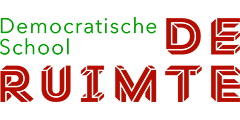Free to learn
At De Ruimte students learn naturally. So what do they learn and how? For that matter: no one is the same. There are as many learning paths as there are students. Is it not extraordinary that you can enter a school and take charge of your own learning life? You gain experience, acquire knowledge, you make mistakes, you stumble and fall… and get up again. Is the concept of De Ruimte extraordinary, or is it really the most natural thing in the world?
So what do you learn here?
Many people wonder what is being learned at De Ruimte and how. The answer is quite simple: anything you can think of (or will come up with in the future) and in many different ways. There are as many ways of effective learning as there are people and you can pick your own way. We always have students around who practise the same thing day in day out for a long period of time, for instance playing the guitar. Some of them now play in bands touring the country.
Others prefer the broader perspective and have a try a everything they encounter. Drawing in the art room, socialising on the couch, cooking lunch or joining astronomy classes. After a certain period (months, years) a focus becomes apparent and logical next steps can be defined and taken.
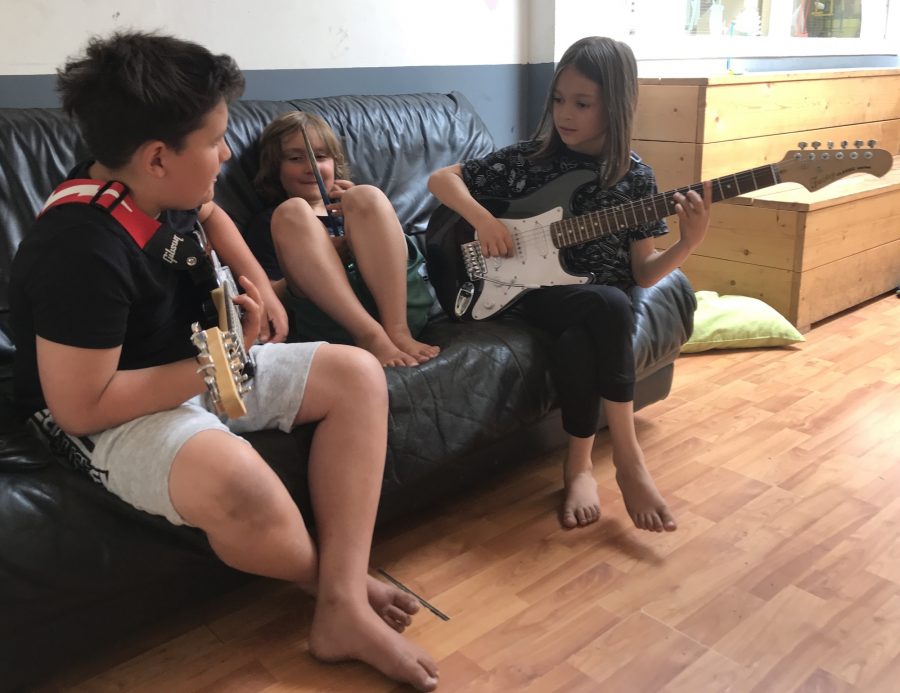
Learning in a broader sense
Children are naturally programmed to learn! Students at De Ruimte decide for themselves how, what and when they learn, in what company they spend their school days, which interests they pursue and how they prepare themselves for their life to come. Learning can be done in lessons, like at conventional schools, but there is also the freedom to learn in your very own way: by self study, research on the internet, playing games, doing an internship or a project, visiting musea, travelling, engaging in conversations and more conversations; listening to each other’s experience, discoveries, experiments and wisdom.
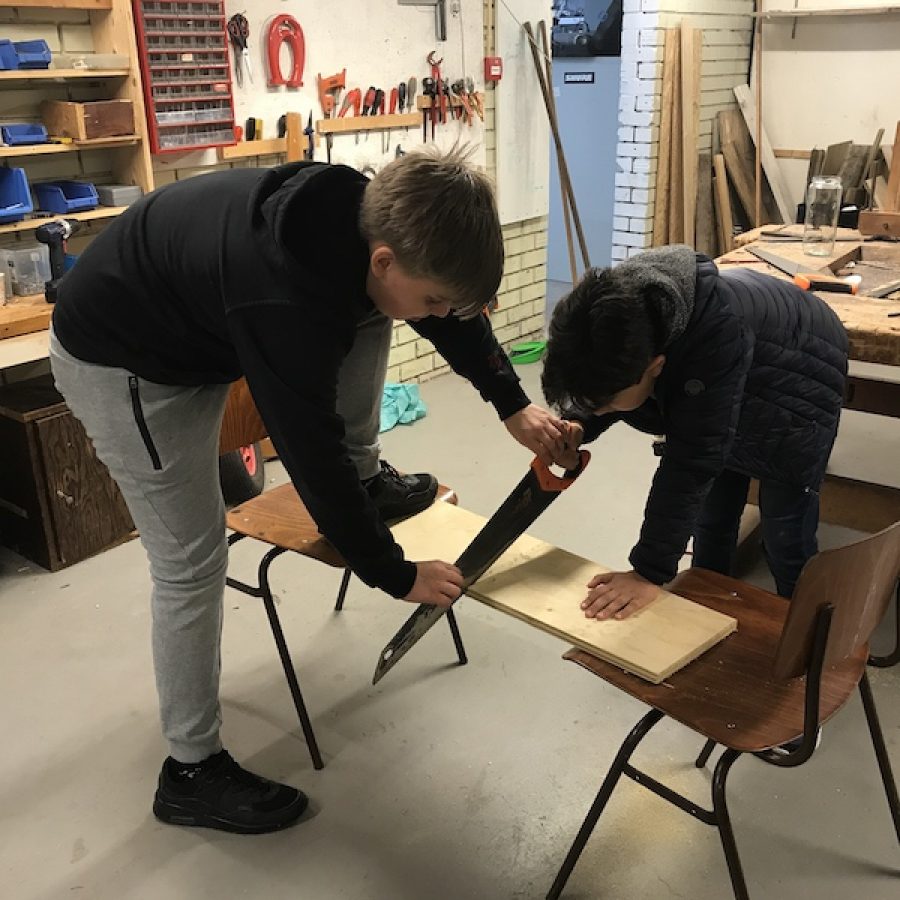
Context and setting
A lot is being learned in contextual activities, like learning to add up in the supermarket, seeing the importance to language skills in the school meeting, or understanding of English to enjoy playing games. To encourage an investigative attitude the school is arranged in a way that sparks curiosity. The environment is deliberately sober. Basically this means that materials (study books and other learning materials) are present, but are not put forward to draw attention. The challenge of the learning environment has its focus in ‘schooling together’ and natural sources like for instance the beautiful school grounds or the art room.
I like to initiate things. This year I wanted to organize a trip to Prague with domain 3, but that was canceled due to corona. I’m trying to find an alternative: maybe an amusement park, or to go camping for a few days somewhere in the Netherlands. I also went to Berlin a few years ago, which was great fun. That trip has improved the connection between students and staff members. This school year I went to Czech Republic with Floris and Evelien, to a democratic school close to Prague. We shared stories about our school at a meeting with other democratic schools from Czech Republic. That was great to do. Maybe I’ll do my exams first and then stay here for another year so I can do those kinds of things; organizing exchanges with other democratic schools all over the world.
Sophia Dijkstra, 17
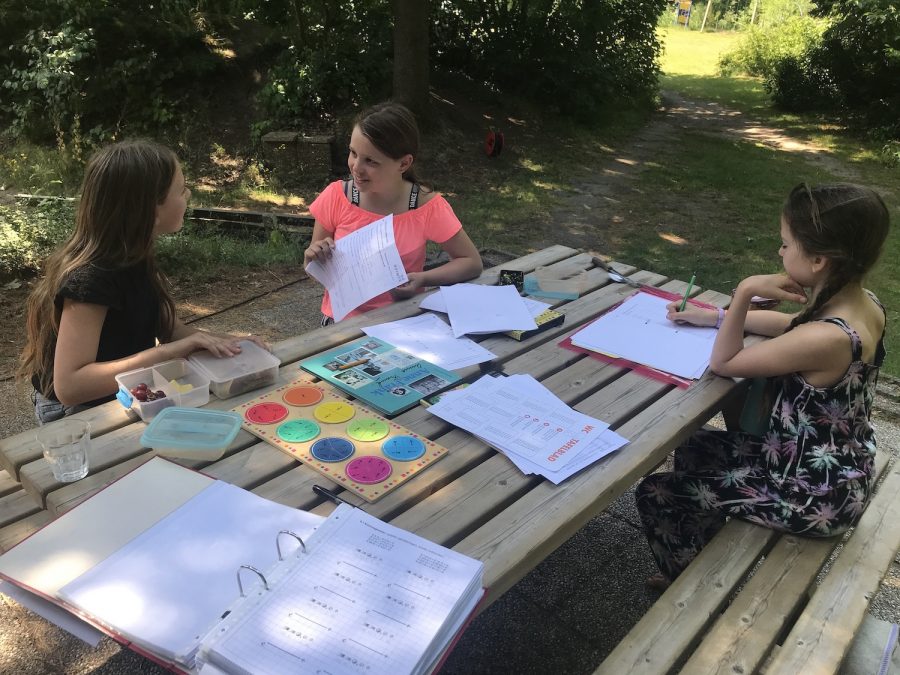
Classes
Most learning takes place in everyday life at school. There is also the possibility to take classes in the regular subjects or, if a large enough group of interested students can be found, a subject that is not yet on the list. If for instance you are very interested in electric engineering, you ask around if others want to join this group. If you find enough enthusiasts, you take your proposal to the Study Circle where the possibilities will be investigated.
Self study
Sometimes classes are based on self study. The used methods are specifically selected for this system. The role of the teacher is one of coach and instructor when needed.
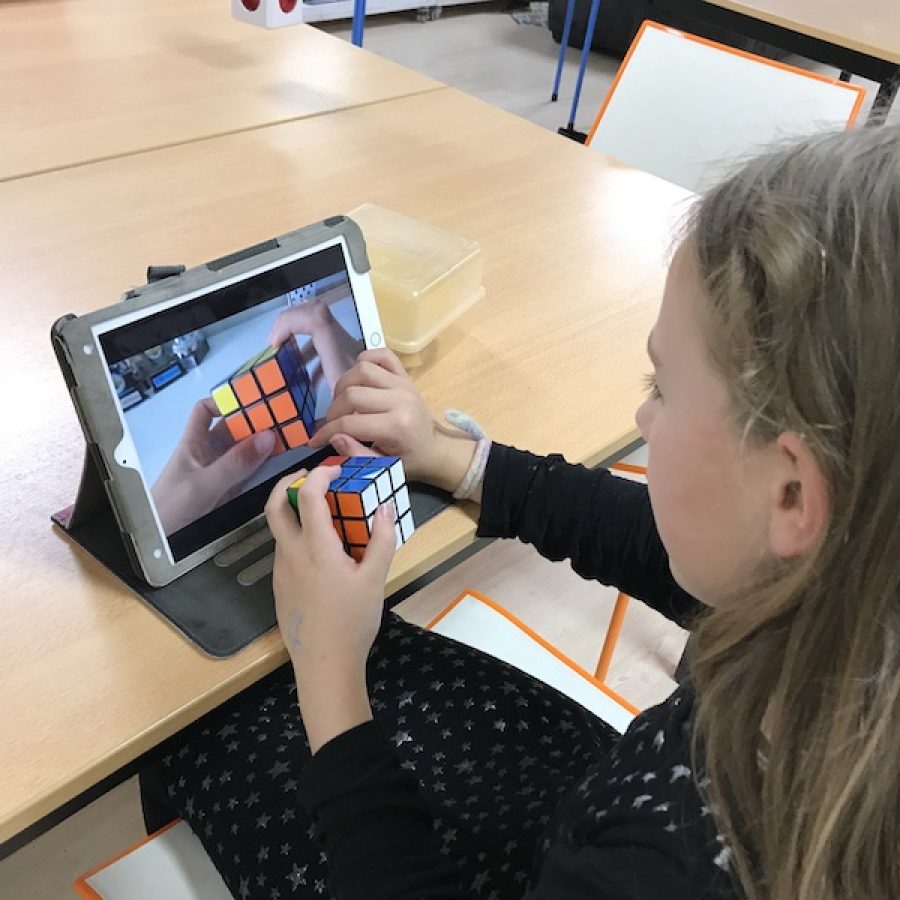
Learning domains
here is a schedule where you can find the staff and teachers available at different days. Each student can make his own weekly schedule taking into account teachers’ availability.
The following domains are being covered at the moment:
- Communication
- Dutch language and other modern languages
- Math and calculus
- Physical exercise
- Science
- Social science
- Art (in many forms)
- Craft and technique
- Other, like philosophy, computer science, catering etc.
When I wasn’t gaming, I was going to classes, working in the art room or playing outside. For many years I also enjoyed cooking with Hettie and other students, I regularly join the boxing lessons with Lex and Marco brought me the love for guitar music (after school I now have guitar lessons every week). At the moment I spend less time gaming and want to practice my social skills more. Gaming takes up a lot of time and I now want to spend that time on lessons and other things.
Maarten Vonken, 17
